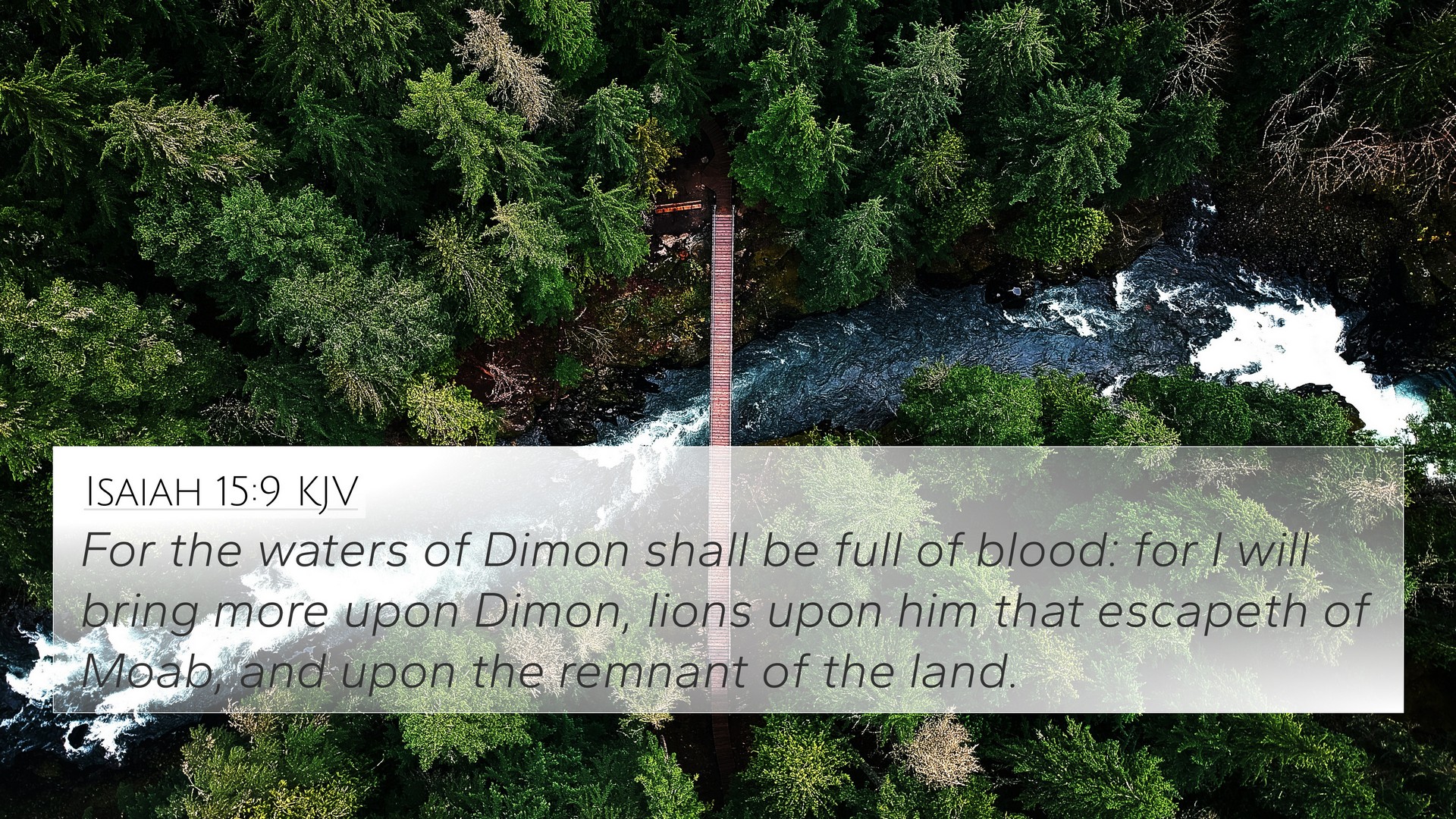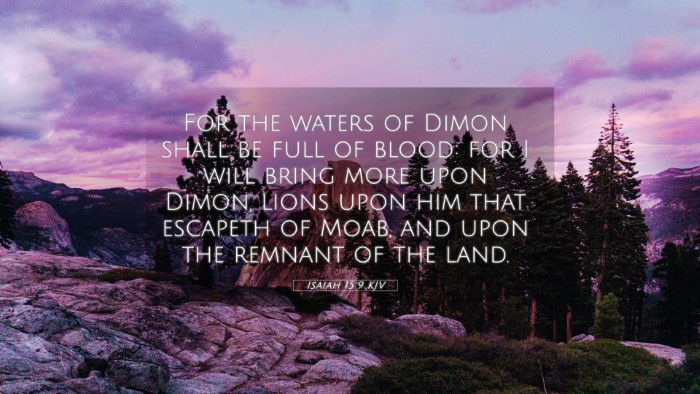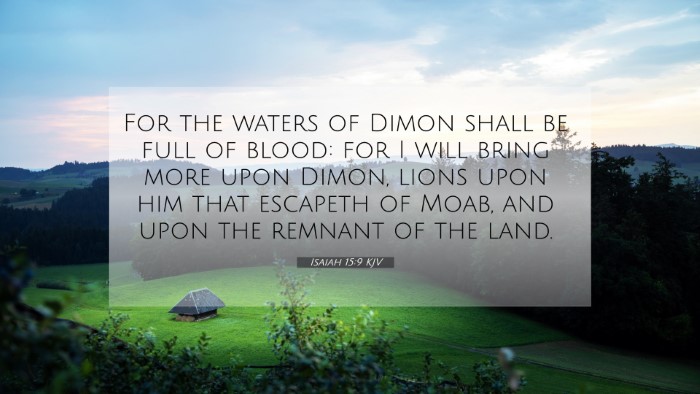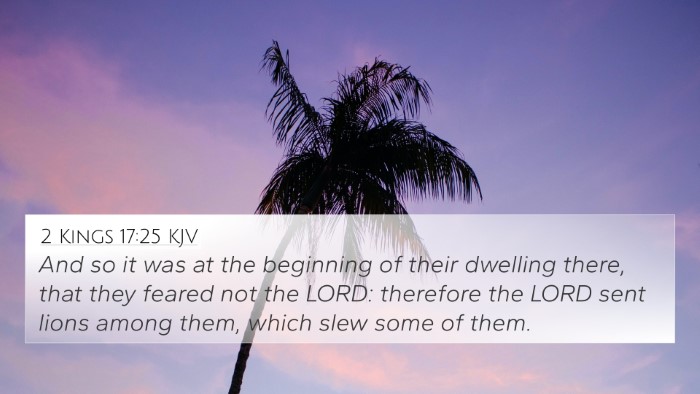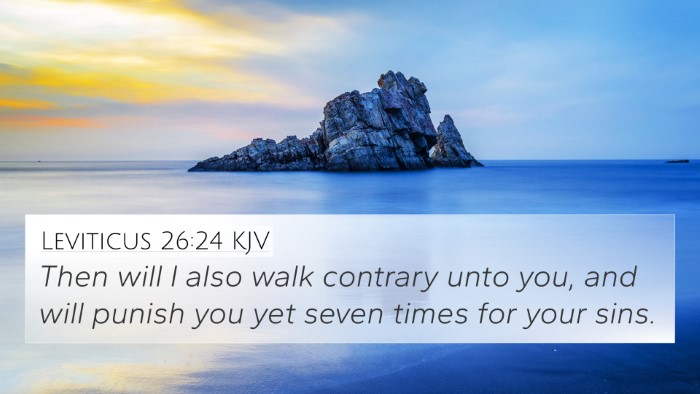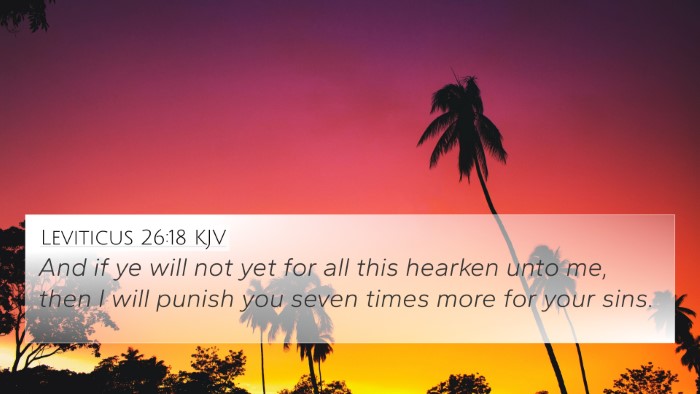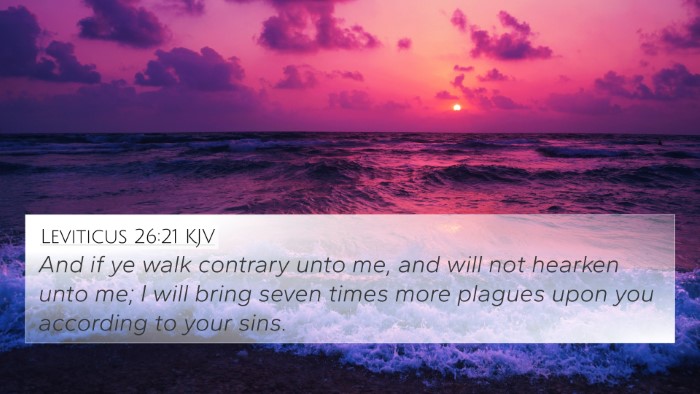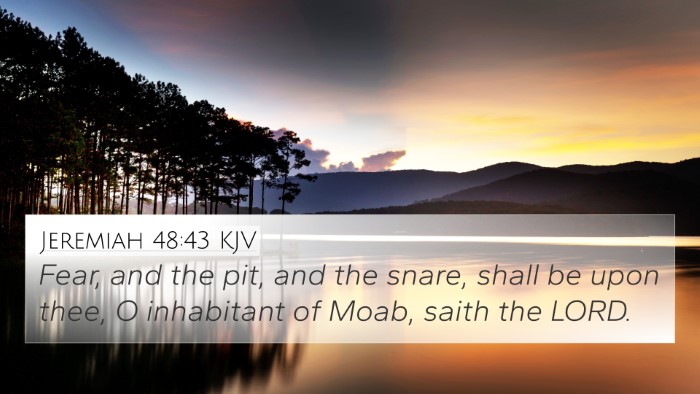In Isaiah 15:9, the prophet delivers a poignant message regarding the impending destruction of Moab, a neighboring nation. The verse reads:
"For the waters of Dimon are full of blood; for I will bring more upon Dimon, lions upon him that escape of Moab, and upon the remnant of the land."
This scripture holds significant meaning, and various public domain commentaries provide insight into its implications. The essentials of this verse revolve around judgment, calamity, and divine retribution. To understand this verse more deeply, we can draw connections through several commentaries.
Interpretation of Isaiah 15:9
According to Matthew Henry, the imagery of "the waters of Dimon" being full of blood represents the overwhelming consequences of war and violence that beset Moab. It suggests that the bloodshed will be so vast that even the waters themselves become stained. This indicates a profound judgment from God upon Moab, marking it as a warning against sin and rebellion.
Albert Barnes emphasizes the inevitability of divine judgment. He notes that the mention of "lions" signifies the ferocity of the coming destruction, sweeping away those who manage to evade the initial carnage. The prophetic nature of this verse speaks to the severe consequences of turning away from God, as well as the context of inter-Biblical dialogue regarding sin's repercussions, which resonates through the scripture.
On the other hand, Adam Clarke delves into the geographic and symbolic significance of Dimon as a location of mourning. The emphasis on blood signifies not only loss of life but also the spiritual death that accompanies the fall of a nation. Clarke posits that these catastrophic events serve as reminders of what true separation from God entails.
Major Themes and Connections
Isaiah 15:9 can be understood as part of a larger narrative of prophetic warnings throughout the Bible. Here are several themes and connections that emerge:
-
Judgment on Nations: This verse illustrates God's sovereignty over nations and serves as a reminder of the consequences of sin and rebellion.
Cross-reference with Jeremiah 48:1-47, which provides further elaboration on God's judgment against Moab.
-
Divine Retribution: The bloodshed signifies divine retribution for the sins committed against God. Link to Ezekiel 18:30-32, which discusses repentance and the mercy of God amidst judgment.
-
The Certainty of Destruction: The reality of destruction is emphasized by imagery of lions, which aligns with Amos 1:13-15, where God pronounces ruin upon the children of Ammon.
-
The Fate of the Remnant: The idea of a remnant surviving chaos parallels the prophecies in Isaiah 10:20-22, where a remnant of Israel returns after judgment.
-
Blood as a Metaphor: Blood signifies life and death throughout scripture. Consider its connection to Genesis 9:6, where God outlines the sanctity of human life.
-
God’s Active Role in History: God's hand in the affairs of nations reflects His overarching plan, resonating with Psalm 46:10 which speaks to God's sovereignty.
-
Call to Mourning: The tone of mourning in this verse suggests a need for lamenting over sin, similar to James 4:9, where believers are called to grieve over their shortcomings.
Cross-Referencing Bible Verses
When studying Isaiah 15:9, it's beneficial to engage in comparative Bible verse analysis to uncover deeper meanings and correlations. Here are some additional Bible verses that relate to its themes:
- Isaiah 1:28 - The rebellion of the wicked will be judged, paralleling the judgment of Moab.
- Jeremiah 9:10 - Mourning for the desolation of the land, similar to the emotions expressed in Isaiah 15.
- Zephaniah 2:8-10 - Destruction upon Moab and the recompense for their actions, linking to prophetic traditions.
- Revelation 16:6 - Alludes to the bloodshed as part of divine judgment in a future context.
- Ezekiel 32:6 - Speaks of shedding blood across the land, resonating with the violence in Isaiah.
- Matthew 23:37-39 - Jesus speaks of Jerusalem's rejection and impending judgment, similar to the themes in Isaiah.
- Romans 12:19 - Calls on God for vengeance, underscoring the biblical principle of divine justice.
Conclusion
Isaiah 15:9 serves as a stark reminder of the consequences that result from turning away from God. Through the insights provided by various commentaries, and the connections established through cross-references, readers can foster a deeper understanding of Biblical themes, the nature of divine judgement, and inter-Biblical dialogue on sin.
The prophet Isaiah continues to speak to us today with these powerful images, urging us to reflect on the ramifications of our actions in relationship to God.
